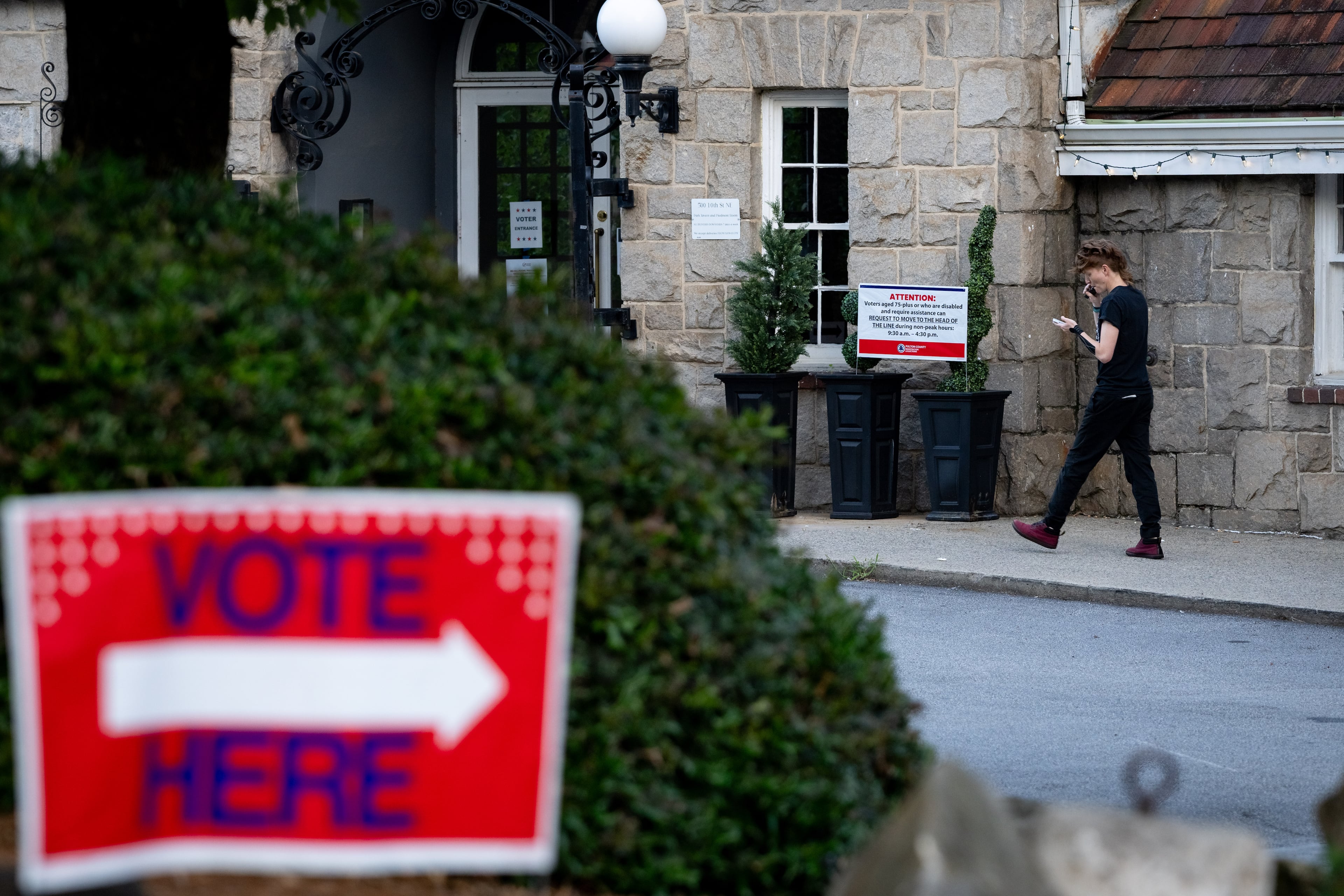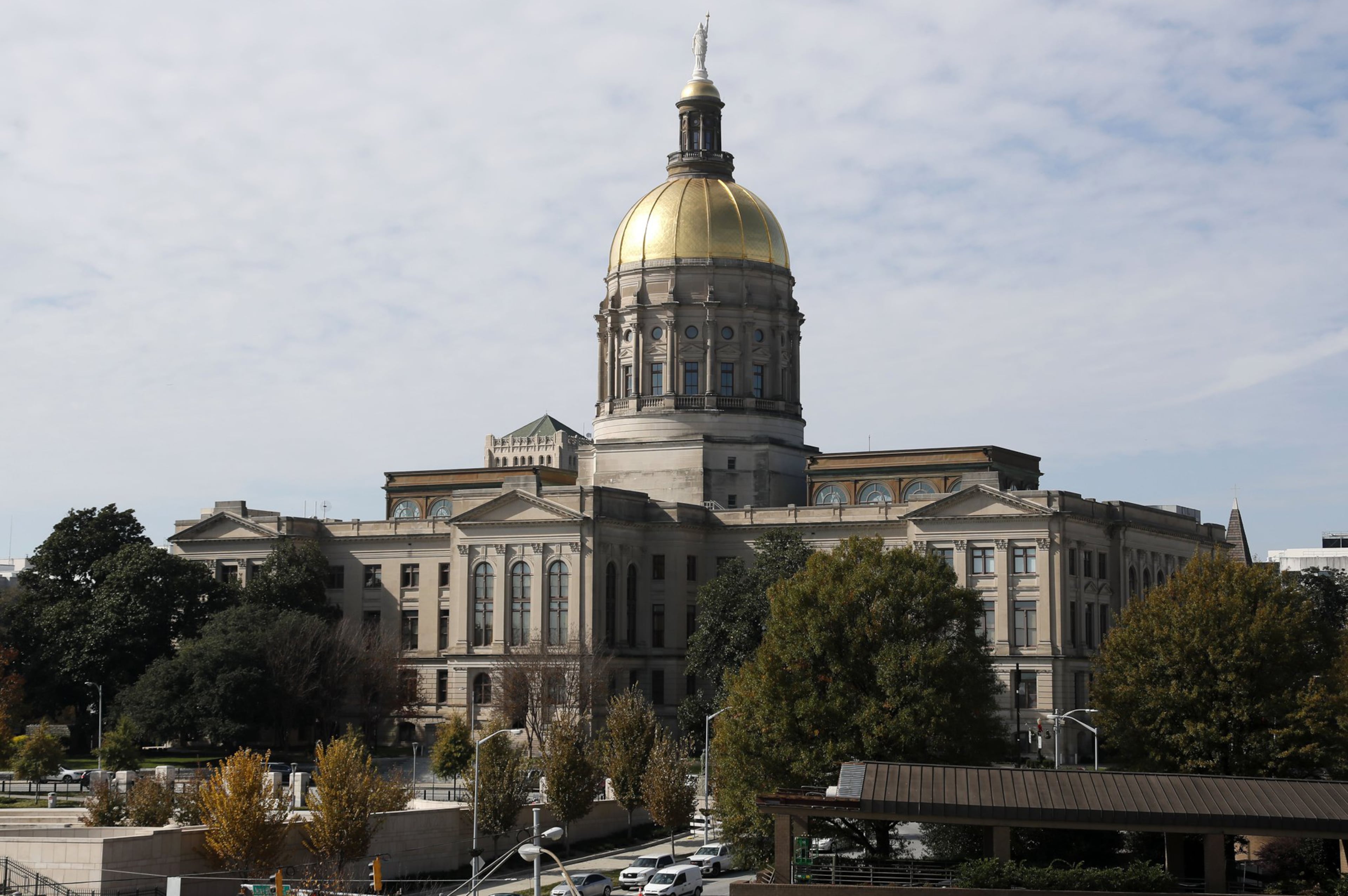Why the PSC election next month is an early test for Democratic momentum

A few days after “No Kings” protests brought thousands of demonstrators to streets across Georgia, several Democratic leaders gathered for a far quieter event inside Atlanta City Hall.
Standing in the building’s marbled halls, Mayor Andre Dickens joined gubernatorial contender Jason Esteves to urge voters to translate their outrage at President Donald Trump’s administration into action at the ballot box that could set the tempo for the 2026 midterm.
“We want muscle memory for next year,” said Dickens, who is seeking a second term in November. “It’s important for us to get that energy around voting now so it carries over until next year.”
Their message to Democratic voters: Don’t overlook this November’s tone-setting elections, including the low-profile races for two seats held by Tim Echols and Fitz Johnson on the all-Republican Public Service Commission.
Democrats are cautiously optimistic that Peter Hubbard and Alicia Johnson could become the party’s first statewide winners since 2006 in any race not involving Joe Biden or U.S. Sens. Jon Ossoff or Raphael Warnock.

Victories won’t give Democrats control of the five-member panel. But they would give the party their first non-federal statewide wins in nearly 20 years — and momentum heading into 2026, when Ossoff is on the ballot and other statewide offices are up for grabs.
It helps explain why national Democrats are pouring in resources. Democratic National Committee vice chair Jane Kleeb is headed to Georgia next week to help rally voters, and party officials say hundreds of volunteers are being dispatched for a final push.
Republicans see the contests as a two-front battle: against Democrats mobilized by rising utility rates and against the surge of municipal elections in left-leaning cities, like Atlanta, that are helping drive turnout.
Early voting numbers in Democratic strongholds are far outpacing those in GOP-friendly counties, and some Republicans worry about closing the gap by Election Day on Nov. 4.
“Republicans aren’t energized, and Democrats have a built-in advantage with large turnout in urban areas with municipal elections,” said Josh Stanley, a GOP activist in Haralson County. “No matter how you view it, we’re behind the eight ball.”
A midterm rehearsal
It’s unusual for a regulatory race to become a proxy for Georgia’s broader political divide, but this one has. Both parties are treating it as a rehearsal for next year’s high-stakes contests, with groups pouring millions of dollars into races that normally cost a fraction as much — and attract a fraction of the attention.
Republicans are testing the limits of MAGA-friendly messaging to rally conservatives, especially in GOP-heavy rural and exurban counties where the PSC seats are the only races on the ballot.
Georgia GOP Chair Josh McKoon recently likened Alicia Johnson to far-left New York mayoral candidate Zohran Mamdani because both were endorsed by the same green group. Echols and others have labeled the Democrats “woke” DEI activists who would unleash a wave of liberal changes on a regulatory agency so obscure most Georgians barely know what it does.

But the rhetoric is backed by serious money. Senior Republicans estimate at least $4 million will be spent on boosting the incumbents, including help from Gov. Brian Kemp’s political machine. Kemp appointed Fitz Johnson to the PSC in 2021, and the regulator now faces his first reelection test.
While both GOP campaigns are embracing a range of strategies, Echols is spectacularly blunt about his approach.
He recently displayed a buffet of mailers: One aimed at blue-collar workers highlights a union endorsement. Another targeting swing voters touts Echols as the “solar architect of Georgia” and reminds voters of his love for electric vehicles. A third brands him a MAGA-friendly watchdog — the message he’s emphasizing most loudly on the campaign trail.
“In the summer, I was way too nice. I was thinking because I wore a Bulldog shirt and they supposedly had been seeing me for 15 years, they would vote for me. Well, that didn’t happen,” Echols, first elected in 2010, said on the “Politically Georgia” podcast.
“Now we’ve gone with a little more aggressive campaign. We’re attempting to scare our Republican base that if we lose this, bad things are happening. And we’ll see if this message gets through.”
And he’s equally blunt about his attacks labeling Alicia Johnson, who is Black, as a “DEI specialist,” even though the health care executive said that’s not her role.
Echols said he used that phrase deliberately — arguing that she could echo Democrats in other states by pressuring utilities to hold off on disconnecting power and forgiving bills for struggling customers.
“This is not a dog whistle. This is a whistle. I’m not being shy about it,” he said.
‘A rubber stamp’
Conservative groups are sounding the alarm. Greater Georgia, the political network founded by former U.S. Sen. Kelly Loeffler, has blasted out regular reminders showing early voting surges in Democratic counties such as Fulton while turnout in Republican areas lags.
“Too many voters still don’t realize there’s a statewide election on the ballot this fall,” one dispatch warned.
Democrats, meanwhile, are countering with a pocketbook message — the kind of economic argument many party leaders wished had played a larger role in former Vice President Kamala Harris’ losing 2024 campaign.

They are relentlessly targeting the six Georgia Power rate hikes the commission has approved since 2023 that have added roughly $43 to average monthly residential bills.
And they have help from the state party and allied groups. The Democratic Party of Georgia has an ongoing “My Power Bill’s Too High” tour focused on the rate hikes, along with twice-weekly volunteer phone banks and targeted canvassing programs.
And the Georgia Conservation Voters Action Fund last week launched a $2.2 million campaign targeting the Republican incumbents. The effort includes digital ads, mailers and a website featuring both wearing Trump-styled red hats reading: “We raised your bills.”
Both Democrats frame their races as an antidote to Georgia’s affordability crisis. Hubbard tells voters they “can put money back in your pocket, not the pockets of utility executives” with a vote for the Democratic ticket. And Alicia Johnson said “racist, MAGA dog whistles” aimed at her campaign are designed to distract votes from the real issue: rising electricity bills.
“This is an opportunity for us to have a Public Service Commission that is a regulatory authority,” she said, “and not a rubber stamp.”



